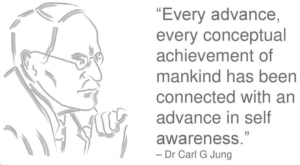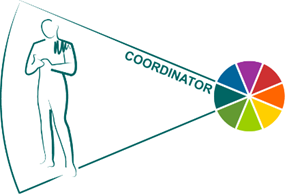The Personal and Collective Unconscious
Back in the early days of analytical psychology, Carl Jung had an idea. He theorized that there was a split between a collective unconscious level that everyone shared, and a personal unconscious that was entirely unique to an individual. Far from being a ‘hive mind,’ the collective unconscious is rather a collection of responses and reactions to common situations humans have encountered since the very beginning. This collective unconscious gives us the fight or flight response and allows us to rest our conscious selves when doing activities we’ve done hundreds of times before.
The personal sphere of consciousness is a different beast entirely. Our personal consciousness is made up of the thoughts, beliefs, behaviors and ideas that make us who we are. All of these traits come from the unconscious and its ability to transform everyday events into character-defining personality types. The personal conscious, unlike the collective unconscious, uses information gathered from a person’s life rather than from humanity’s collective background.
The importance of the personal unconscious
Without a personal unconscious, we wouldn’t be who we are and couldn’t become who we were meant to be. As humans, we begin our lives dependent on our unconscious minds for survival- only as we learn and grow do we begin to develop and practice using our conscious minds to make our way throughout the world.
The personal unconscious helps us approach the world from our unique perspective. For instance, a person who unconsciously filters out information in a more analytical way is less likely to have a feeling-type personality as a strong determining factor in their outward, conscious personality. In this same way, other people may have a tendency to favor feeling over thinking when looking at the world around them, or developing a strong sense of intuition about life’s circumstances versus a more sensory approach to those same situations.
Our personal conscious and personal unconscious exist on separate levels and yet interact with one another in a highly specific way. Working with our conscious and understanding how it works with our unconscious can help us be better leaders, better employees, better coworkers, and better individuals.
The influence of the collective unconscious
As important as our personal unconscious is, we can’t ignore the historical and psychological influence that our collective unconscious holds over us. The very instincts that make us human have developed over a huge span of time; these instincts have taught us to run and hide when we are in danger and to recognize signs of danger or fear through physiological signs like breathing hard or shaking. The collective unconscious also allows us to make quick decisions, often without knowing where they came from in the first place. The collective unconscious governs intuition and reflex, among other important functions.
Jung opened up an entirely new world with his discoveries, and discoveries into the psychology of personality and the self are still being made today. Insights Discovery is based squarely on Jung’s theories, and as such, is an invaluable tool in helping people understand themselves and others. If you would like further help in identifying yourself or others as part of the four color personalities, schedule me, Scott Schwefel, as your keynote speaker. I will come to your group and address the differences in personalities in a truthful, fun, and easy-to-understand way. Follow me on Facebook, LinkedIn, and Twitter to share my blogs with the color energies you work with!









